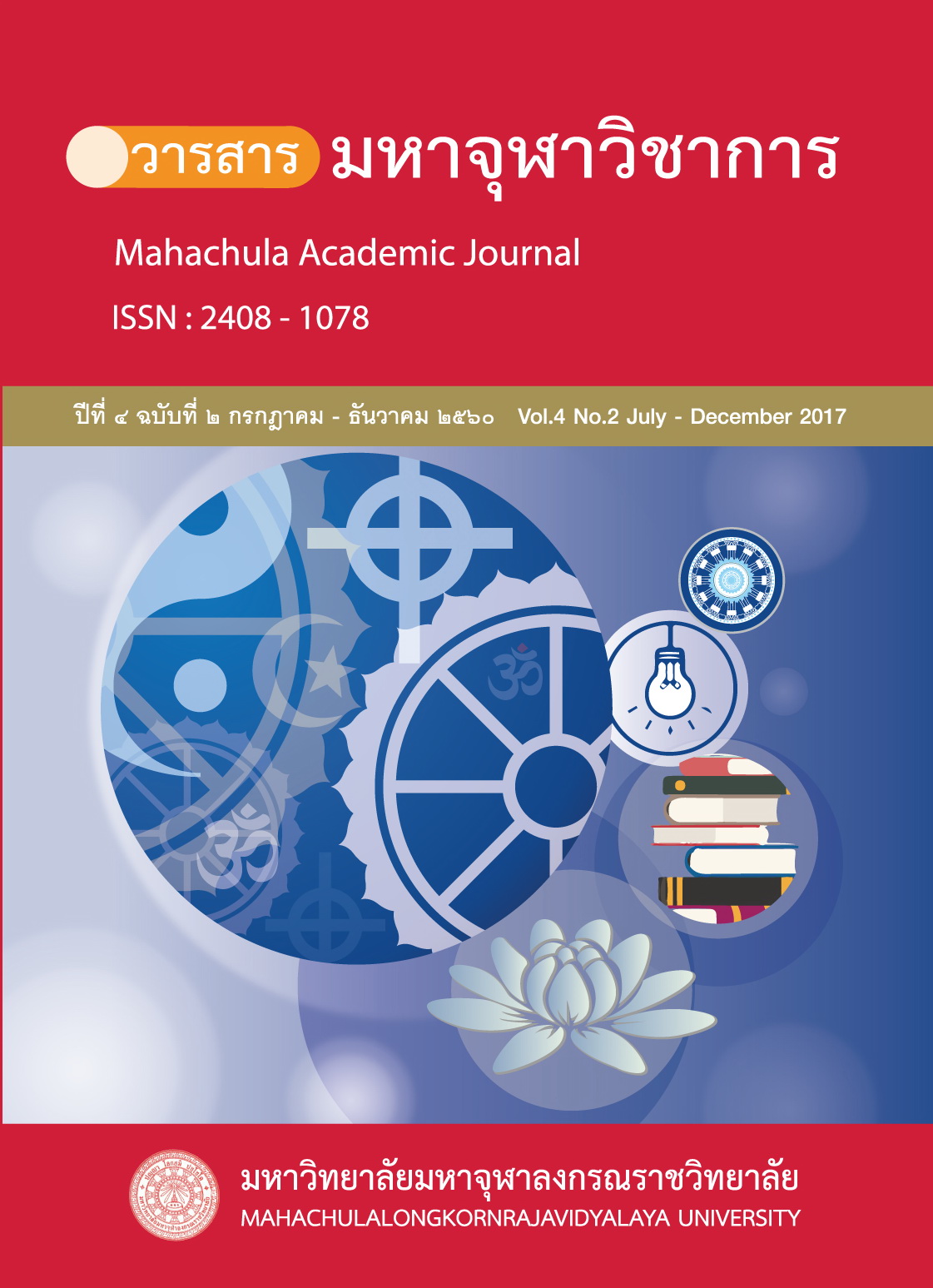A Model of Social Intelligence Development for Basic EducationAdministrators
Main Article Content
Abstract
This research aimed to develop a model of social intelligence development for basic educational administrators with the following objectives: 1) to analyze the factors of a model of social intelligence development for basic educational administrators, 2) to create a model of social intelligence development for basic educational administrators, and 3) to evaluate a model of social intelligence development for basic
educational administrators. The research was conducted in three steps. Step 1 was to analyze the components of social intelligence for administrators in basic education schools by studying related documents, interviewing 7 experts, and collecting data from a sample group of 556 people from 139 schools. Step 2 was to create a model of social intelligence development for basic educational administrators by way of holding a connoisseurship of 9 experts. Step 3 was to evaluate a model of social intelligence development for basic educational administrators by collecting the data from 9 directors of the secondary schools. The findings of this research were as follows: 1) The analysis of components of a model of social intelligence development for basic educational administrators according to the set criterion resulted in 6 factors: social skills for leaders, communication and motivation, social cognition, social connection, social conversation,
and social characteristics. 2) The model of social intelligence for administrators in basic educational administrators consisted of 3 parts: introduction, contents were included the components of a model of social intelligence development for basic educational administrators and self - development, and successful conditions. 3) The evaluation of a model of social intelligence development for basic educational administrators revealed that the aspects of feasibility and usefulness were at the highest level.
Article Details
References
กาญจน์กมล สุวิทยารัตน์. “การศึกษาและพัฒนาความฉลาดทางสังคมของนักศึกษาสถาบันอุดมศึกษาภาคใต้”. วิทยานิพนธ์การศึกษาดุษฎีบัณฑิต สาขาจิตวิทยาการให้คำปรึกษา. บัณฑิตวิทยาลัย: มหาวิทยาลัยศรีนครินทรวิโรฒ, ๒๕๕๗.
ทองทิพภา วิริยะพันธ์. ผู้บริหารยุคบรรษัทภิบาล. กรุงเทพมหานคร: โรงพิมพ์อินเฟอร์มีเดียบุ๊ค, ๒๕๔๕.
ธีระ รุญเจริญ. การบริหารโรงเรียนยุคปฏิรูปการศึกษา. กรุงเทพมหานคร: โรงพิมพ์ข้าวฟ่าง. ๒๕๔๖.
ประจวบ แจ้โพธิ์. “ความคิดเห็นของครูต่อบทบาทผู้บริหารในการพัฒนาการทำงานเป็นทีมของครูในโรงเรียน สำนักงานเขตบึงกุ่ม สังกัดกรุงเทพมหานคร”. วารสารสุทธิปริทัศน์,.ปีที่ ๒๘ ฉบับที่ ๘๗ (กรกฎาคม-กันยายน 2557): 269
เพชรยุพา บูรณ์สิริจรุงรัฐ. “รูปแบบการพัฒนาความฉลาดทางสังคมของพนักงานบริษัท จำกัด (มหาชน) ที่เกี่ยวกับธุรกิจสื่อสารมวลชนในประเทศไทย”. วิทยานิพนธ์ปรัชญาดุษฎีบัณฑิต การพัฒนาทรัพยากรมนุษย์. บัณฑิตวิทยาลัย: มหาวิทยาลัยรามคำแหง, ๒๕๕๕.
วนิษา เรซ. อัจฉริยะสร้างได้. กรุงเทพมหานคร: สำนักพิมพ์เรด, ๒๕๕๐.
วีรวัฒน์ ปันนิตามัย. เชาว์อารมณ์ (EQ) : ดัชนีเพื่อความสุขและความสำเร็จในชีวิต. พิมพ์ครั้งที่ ๗. กรุงเทพมหานคร: สำนักพิมพ์แห่งจุฬาลงกรณ์มหาวิทยาลัย, ๒๕๕๑.
สุขุม เฉลยทรัพย์. “บทบาทของผู้บริหารในการส่งเสริมและพัฒนาการเรียนรู้ที่สอดคล้องกับสมองของเด็กปฐมวัย”. ในการอบรมผู้บริหารสถานศึกษาในการส่งเสริมการเรียนในเด็กปฐมวัย. (๒๖-๒๗ สิงหาคม ๒๕๔๙) มหาวิทยาลัยราชภัฏสวนดุสิต, ๒๕๔๙.
อาคม วัดไธสงค์. หน้าที่ผู้นำในการบริหารการศึกษา. พิมพ์ครั้งที่ ๒. สงขลา: โรงพิมพ์มหาวิทยาลัยทักษิณ, ๒๕๔๗.
อำนวย เดชชัยศรี, สุทธิพงษ์ ศรีวิชัย. “ทักษะการบริหารมนุษยสัมพันธ์ตามแนวพุทธ”. วารสารมหาจุฬาวิชาการ, ปีที่ ๔ ฉบับที่ ๑ (มกราคม-มิถุนายน ๒๕๖๐): ๕๓.
Buzan, T. The power social intelligence. Welling borough. England: Thorsons, 2003.
Corrigan, P.W. “Beat the stigma: Come out of the closet”. Psychiatric Services. vol.54 No.1: 13.
Flavell, J. H. “Role-taking and communication skills in children”. Young Children, vol. 21: 164-177.
Herbert, A. S. Administrative behavior : A study of decision-making processes in administrative organizations. New York: The Free Press, 1947.
Vernon, P.E. “Some characteristics of the good judge of personality”. Journal of Social Phycology, vol.4: 42-47.
Wayne K. Hoy, and Cecil G, Miskel. Educational Administration: Theory-ResearchPractice. New York: McGraw – Hill, 1991.


